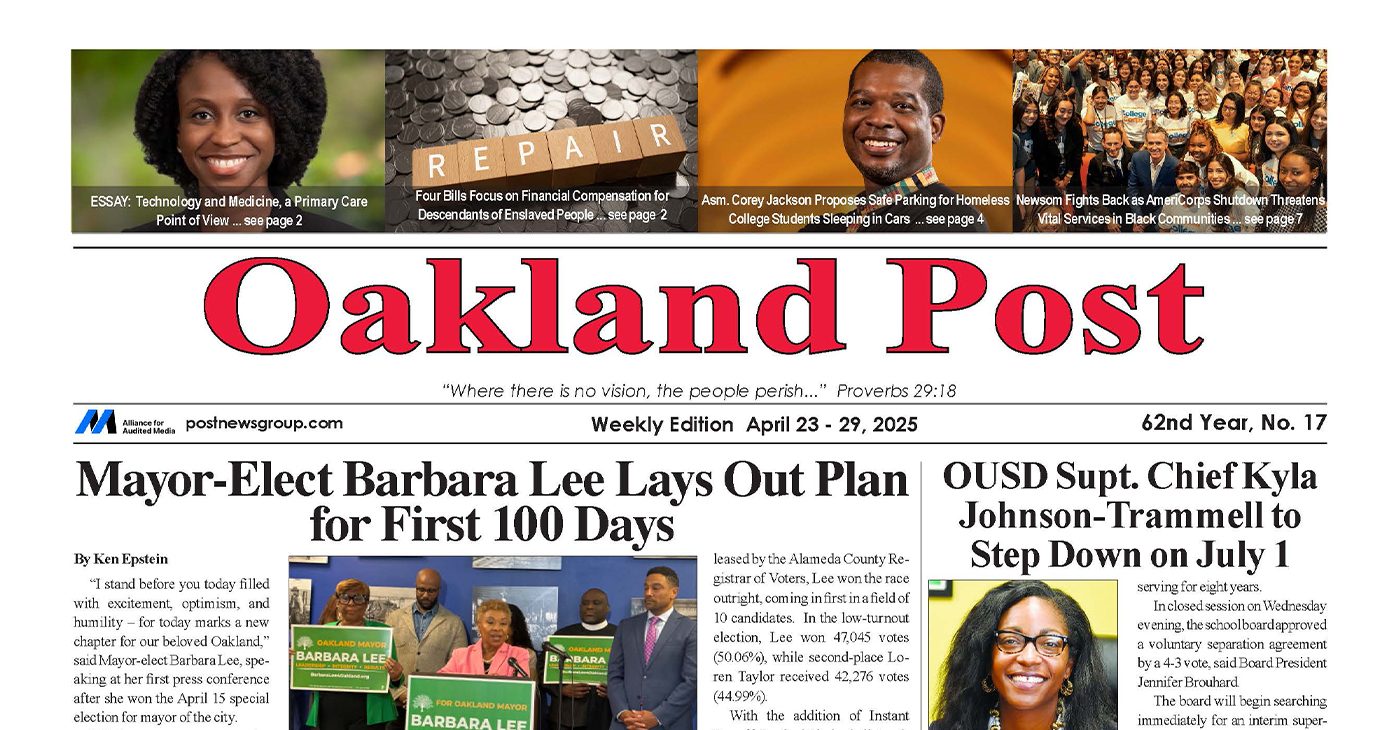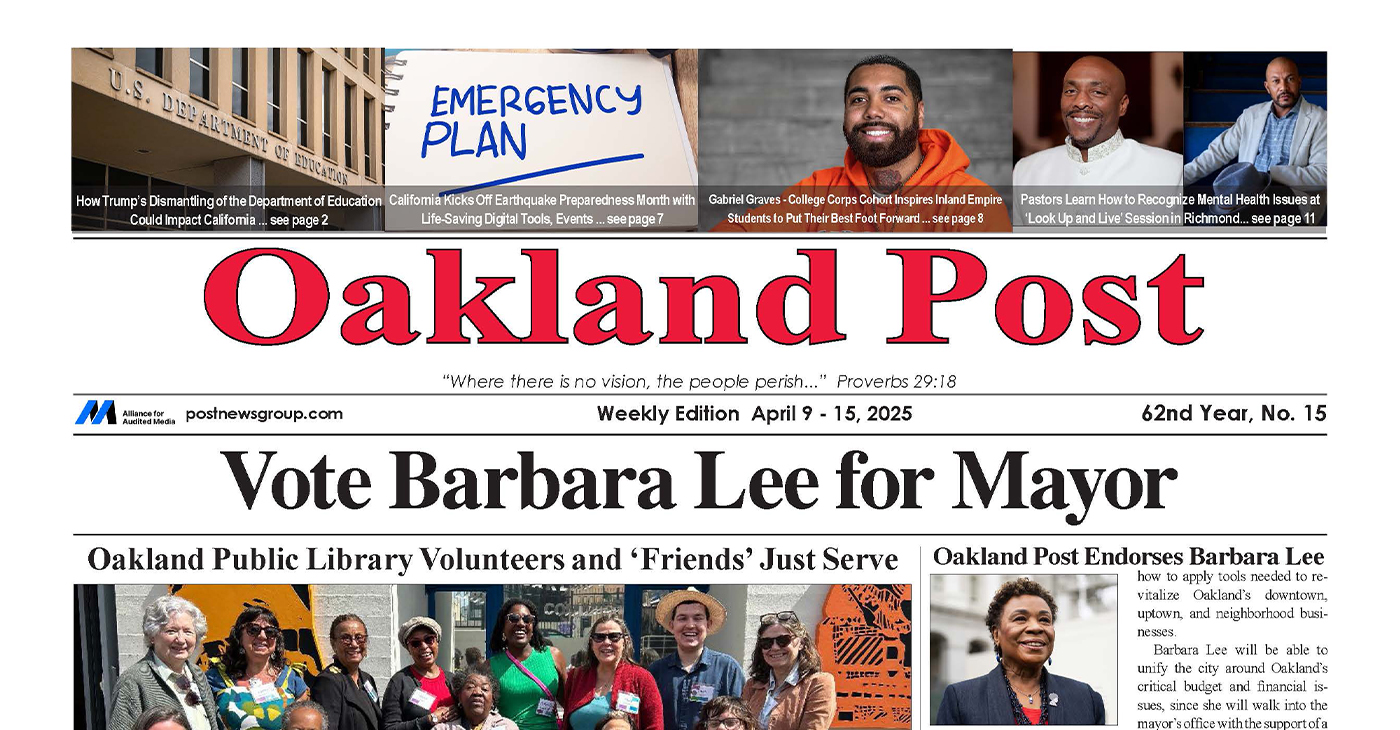City Government
Alameda County Launches New Redistricting Process
The next hearing will occur on Tuesday, Oct.12 at noon on Zoom (Access the meeting link at: https://redistricting2021.acgov.org/meetings/)

The Alameda County Board of Supervisors held a Special Meeting Tuesday to hear public input on redistricting.
The county will begin redrawing districts for its five Board of Supervisors. Redistricting is the process of adjusting existing district boundaries and must occur every 10 years after the population data is available from the decennial Census.
The City of Oakland is also underway with redistricting for its city council and corresponding school board districts. Those new maps will be approved by an Independent Redistricting Commission, as was approved by voters in a 2014 ballot measure.
Alameda County’s Board of Supervisors will vote on the final maps, which must be passed with a 2/3 majority.
Census 2020 data shows that Alameda County grew by 10.7% over that last 10 years and is now home to 1,682,353 residents. More data will be released soon to reflect which Supervisorial districts are too large and which districts are too small in population as currently configured.
With the passage of the FAIR MAPS Act (Fair and Inclusive Redistricting for Municipalities and Political Subdivisions), state law now requires counties to follow specific timelines and requirements for their redistricting processes, including holding at least four public hearings, ensuring language access, publishing all materials and meeting information on a website, and collecting input from the public in multiple formats.
“Alameda County is exceeding the new transparency laws for our redistricting process. We’ve even procured a mapping tool to allow the public to draw their own “Communities of Interest” and to propose district maps,” said Casey Farmer, director of community engagement for Alameda County Redistricting 2021.
“Public input is vital to this process, so we’ve made it easy to engage in many ways,” said Farmer. “By taking a few minutes to share your “Communities of Interest,” you will ensure the Board knows which areas you want to remain intact in the new district boundaries.”
Members of the public can engage in the redistricting process in multiple ways, including sharing their Communities of Interest (a geographic area of residents who share economic or social interests) using an online mapping tool, submitting written input or phoning in feedback. The public can also speak at any of the eight Redistricting hearings.
The new district maps must abide by the following criteria: Comply with US and California Constitution (which requires equal population amongst districts), comply with federal Voting Rights Act (to protect race and language minorities), maintain geographic contiguity, and uphold geographic integrity (minimizing the division of neighborhoods, local Communities of Interest “COIs”, or unincorporated areas). District boundaries should be easily identifiable and understandable by residents, should be compactly configured, and cannot favor or discriminate against political parties.
The County’s Redistricting website contains detailed information about the process, the timeline, videos, multilingual outreach materials, and the online Community of Interest mapping tool: https://redistricting2021.acgov.org/
The next hearing will occur on Tuesday, Oct.12 at noon on Zoom (Access the meeting link at: https://redistricting2021.acgov.org/meetings/)
Activism
Oakland Post: Week of April 23 – 29, 2025
The printed Weekly Edition of the Oakland Post: Week of April 23 – 29, 2025

To enlarge your view of this issue, use the slider, magnifying glass icon or full page icon in the lower right corner of the browser window.
Activism
Oakland Post: Week of April 16 – 22, 2025
The printed Weekly Edition of the Oakland Post: Week of April 16 – 22, 2025

To enlarge your view of this issue, use the slider, magnifying glass icon or full page icon in the lower right corner of the browser window.
Activism
Oakland Post: Week of April 9 – 15, 2025
The printed Weekly Edition of the Oakland Post: Week of April 9 – 15, 2025

To enlarge your view of this issue, use the slider, magnifying glass icon or full page icon in the lower right corner of the browser window.
-

 Activism4 weeks ago
Activism4 weeks agoOakland Post Endorses Barbara Lee
-

 Activism4 weeks ago
Activism4 weeks agoOakland Post: Week of March 28 – April 1, 2025
-

 Activism3 weeks ago
Activism3 weeks agoOakland Post: Week of April 2 – 8, 2025
-

 #NNPA BlackPress3 weeks ago
#NNPA BlackPress3 weeks agoTrump Profits, Black America Pays the Price
-

 Activism2 weeks ago
Activism2 weeks agoOakland Post: Week of April 9 – 15, 2025
-

 #NNPA BlackPress3 weeks ago
#NNPA BlackPress3 weeks agoHarriet Tubman Scrubbed; DEI Dismantled
-

 #NNPA BlackPress3 weeks ago
#NNPA BlackPress3 weeks agoLawmakers Greenlight Reparations Study for Descendants of Enslaved Marylanders
-

 #NNPA BlackPress3 weeks ago
#NNPA BlackPress3 weeks agoTrump Targets a Slavery Removal from the National Museum of African-American History and Culture





















































